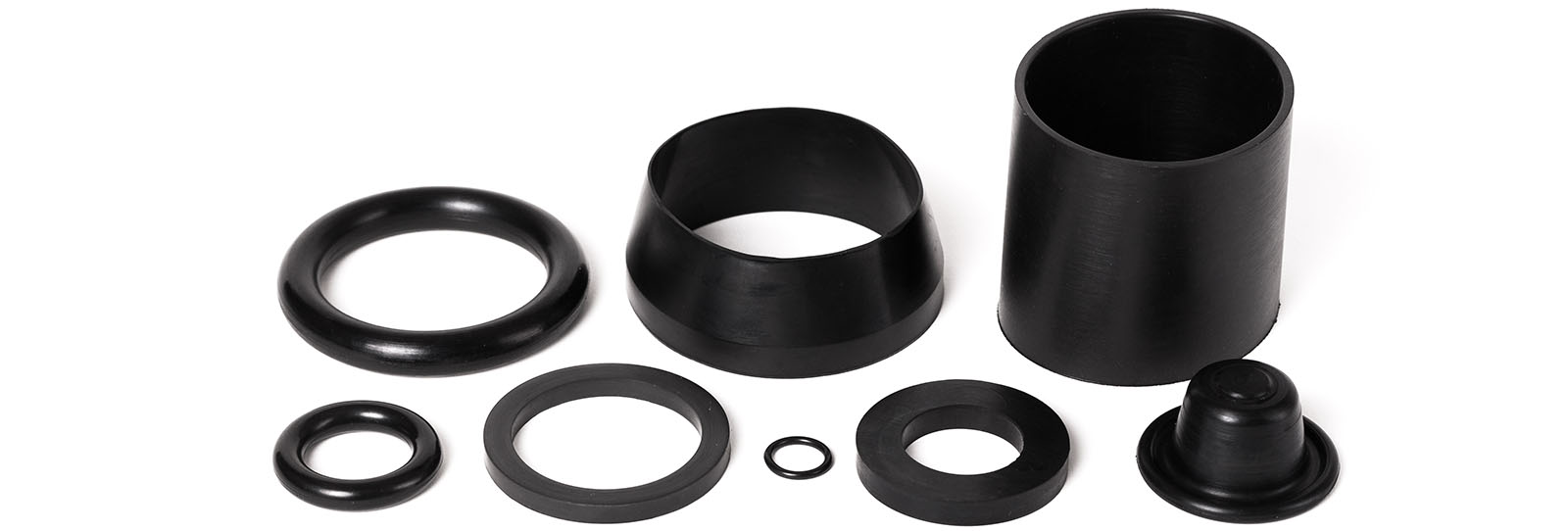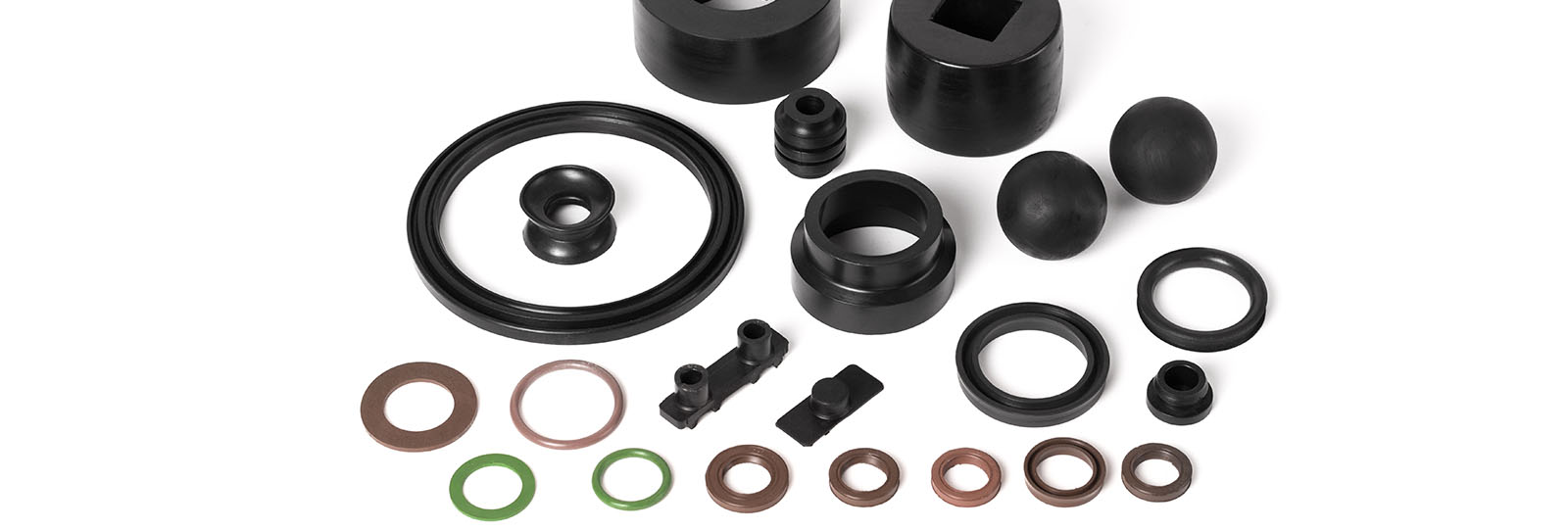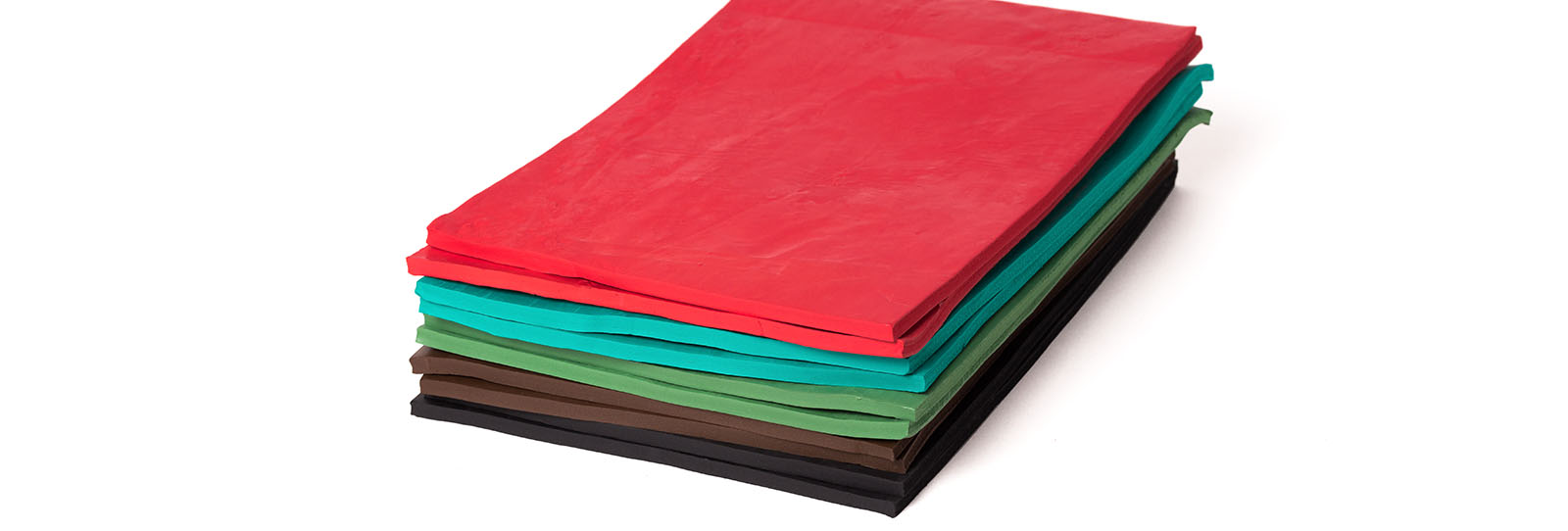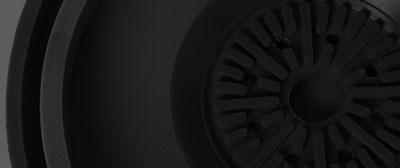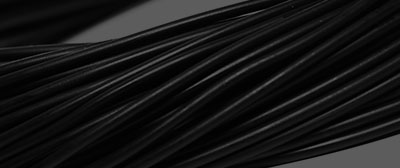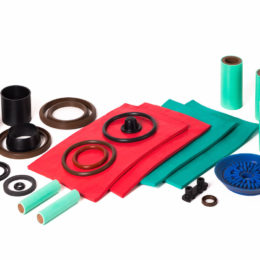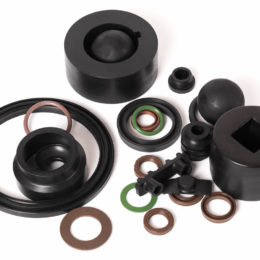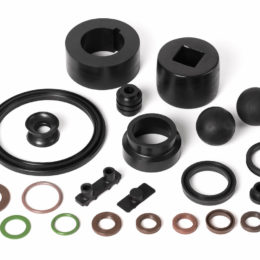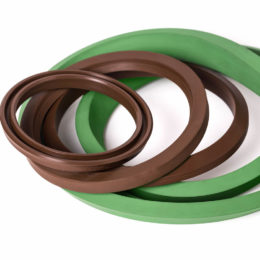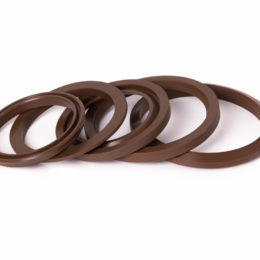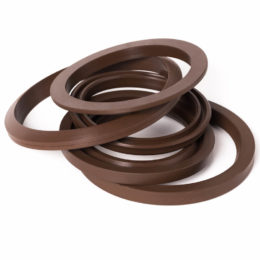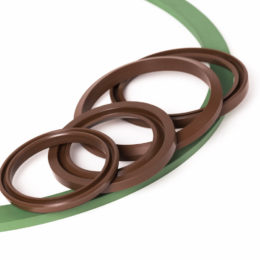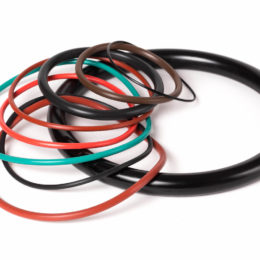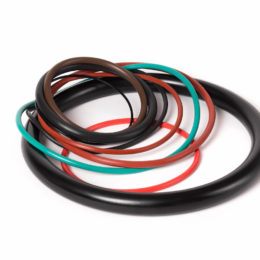FKM
Symbol: FKM / FPM
Common name: Fluoro rubber
Trade name: Viton®, Fluorel®, Tecnoflon®, Daiel®,Noxitite®,Dyneon®
FPM, FKM or VITON?
Fluoro rubber often goes by different names: FPM, FKM or VITON. Even though, they sound completely different, which often leads to confusion, they are all used in reference to the one base material mentioned above – fluoro rubber.
FPM is an international abbreviation according to DIN/ISO, while FKM is the short form for the name of the fluoroelastomer category, based on American standard ASTM.
Viton® on the other hand is the registered trade mark of DuPont Performance Elastomers. FKMs were originally developed by this particular company, but today there are many international producers of fluoroelastomers, such as: Daikin Chemical (Dai-El), Dyneon (Dyneon Fluoroelastomers) formerly 3M, specialized polymers Solvay (Tecnoflon), HaloPolymer (Elaftor) and a few others. Fluoroelastomers are more expensive than neoprene or nitrile rubber elastomers.
What are its characteristics?
Fluoro rubber is a copolymer of monomers containing fluorine, mainly vinylidene fluoride and hexafluoropropylene or vinylidene fluoride and trichloroethylene. The symbol according to ASTM is 1418-FKM.
The most important properties of this material are:
- ⇒ non-flammability
- ⇒ excellent chemical and heat resistance
- ⇒ oozone and UV radiation resistance
- ⇒ low gas permeability and minimum weight loss in vacuum conditions
- ⇒ resistance to oils and fuels
- ⇒ aggressive compounds resistance
- ⇒ resistance to mineral oils and greases, also those containing additives
- ⇒ aromatic and aliphatic hydrocarbons resistance
- ⇒ inorganic acids resistance (hydrochloric, sulphuric, phosphoric, nitric)
- ⇒ biofuels resistance
- ⇒ good mechanical properties
Usage
Fluoro rubber is commonly used in:
- ⇒ energy industry
- ⇒ petroleum industry
- ⇒ chemical industry
- ⇒ aviation industry
- ⇒ aerospace industry
- ⇒ automotive industry
Recently, the usage of fluoroelastomers has significantly increased in the production of sealing solutions. The wide range of chemical resistances, temperatures range, small permanent deformations and excellent aging properties – make fluoro rubber the most important single elastomer developed in recent years. Highly fluorinated carbon polymers are fluorocarbon elastomers, which are resistant to strong chemical and ozone influence.
Fluoric sealings are used in aircraft, automobiles and other mechanical devices requiring maximum resistance to high temperatures and operating in many kinds of liquids. This material can be used in high-vacuum.
Operating temperature range is -30°C to +250°C. For a longer period of time FKM can be used in temperatures up to 200°C, but it may also withstand temporary higher temperature. In automobiles they often last for at least 5000 hours.
There are also special mixtures with increased chemical resistance available. The resistance to swelling increases along with the increasing content of fluorine, but its flexibility (elasticity) deteriorates in low temperatures.
If the mixture composition is right, fluoric vulcanizates may be used as isolation in low- voltage cables.
Peroxide crosslinked FKM rubbers have good resistance to steam and amine oil additives.
The best spring back effect can be obtained by the use of crosslinking systems based on bisphenols.
As with most rubber compounds based on highly efficient elastomers, FKM requires “heating” after its normal curing, for its optimal cured physical properties to be obtained. The heating phase is usually performed in a circulation oven for 2 to 24 hours in 150-250° C, depending on the mixture. The heating eliminates the residue of volatile substances created during the curing process, which may disrupt or break the chemical crosslink created from curing and have negative influence on the final physical properties. Such “curing after curing” increases tensile strength, improves compression set and increases elongation, so it is essential to meet mechanical requirements.
However, there are special fluorocarbons which have high fluorine content and perform well in low temperatures.
Various classes of FKM
FKM is categorized depending on chemical composition, fluorine content and crosslinking mechanism. Therefore, we can distinguish:
| FKM | Type | Description |
|---|---|---|
| FKM | 1 | Dipolymer (or copolymer) consists of vinylidene fluoride (VDF) and hexafluoropropylene (HFP). Copolymers are the standard type of FKM showing good properties. The content of fluorine usually amounts to about 66 percent by weight. |
| FKM | 2 | Terpolymer consists of vinylidene fluoride (VDF), hexafluoropropylene (HFP) and tetrafluoroethylene (TFE). Terpolymers have higher contents of fluorine in comparison to copolymers (usually 68 to 69 percentage of fluorine), which results in better chemical and heat resistance. They may have negative influence on compression and pliability in low |
| FKM | 3 | Terpolymer consists of tetrafluoroethylene (TFE), fluorinated vinyl ether (PMVE) and vinylidene fluoride (VDF). By adding PMVE the material obtains better elasticity in low temperatures in comparison to copolymers and terpolymers. The usual content of fluorine in FKM type 3 is 62 to 68 percentage. |
| FKM | 4 | Terpolymer consists of tetrafluoroethylene (TFE), propylene (P) and vinylidene fluoride (VDF). While the alkaline resistance increases in FKM type 4, swelling properties deteriorate, especially in hydrocarbons. The content of fluorine amounts to about 67 percentage. |
| FKM | 5 | Pantapolymer consists of tetrafluoroethylene (TFE), hexafluoropropylene (HFP), ethylene (E), fluorinated vinyl ether (PMVE) and vinylidene fluoride (VDF). FKM type 5 is known for its alkaline resistance and high-temperature resistance to hydrogen sulphide. |


